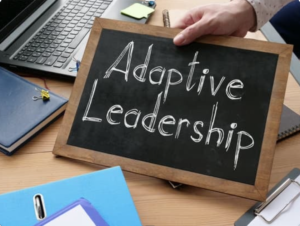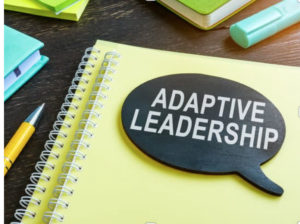
Introduction
In today’s dynamic and unpredictable world, organizations face a constant barrage of challenges, from technological advancements to shifting market landscapes. Amidst this turbulence, adaptive leadership emerges as a critical force for navigating complexity, fostering innovation, and driving positive change. Adaptive leaders are not merely managers or supervisors; they are catalysts for transformation, empowering individuals and organizations to thrive in the face of adversity.
Defining Adaptive Leadership
Adaptive leadership is a leadership approach that emphasizes adaptability, agility, and the ability to navigate complex and uncertain environments. It is characterized by a deep understanding of human behavior, organizational dynamics, and the ability to lead through change. Adaptive leaders are not afraid to challenge the status quo, question assumptions, and experiment with new approaches. They are also skilled at building trust, fostering collaboration, and creating an environment where individuals feel empowered to contribute their best.

The Essential Principles of Adaptive Leadership
Adaptive leadership is grounded in a set of core principles that guide leaders in their endeavors to navigate change and drive positive outcomes. These principles include:
- Embracing Change: Adaptive leaders recognize that change is inevitable and view it as an opportunity for growth and innovation. They actively seek out new information, adapt their strategies, and encourage experimentation.
- Focusing on the Whole System: Adaptive leaders understand that their decisions have ripple effects throughout the organization. They consider the interconnectedness of various factors and strive to create solutions that benefit the entire system.
- Empowering Others: Adaptive leaders recognize the power of collective intelligence and empower individuals to take ownership and contribute their unique perspectives. They foster a culture of collaboration and shared responsibility.
- Building Trust and Psychological Safety: Adaptive leaders create an environment where individuals feel safe to take risks, share ideas, and express concerns. They establish trust by being transparent, authentic, and consistent in their actions.
- Learning and Adapting: Adaptive leaders are continuous learners, actively seeking feedback, analyzing data, and adapting their approaches based on new information. They embrace failure as a learning opportunity and encourage a growth mindset within the organization.

The Role of Adaptive Leadership in Times of Challenge
Adaptive leadership is particularly crucial during times of crisis or significant change. When faced with uncertainty and ambiguity, adaptive leaders provide a sense of direction, stability, and hope. They help individuals and organizations:
- Make Sense of Complexity: Adaptive leaders break down complex challenges into manageable components, helping others understand the root causes and potential solutions.
- Manage Emotions and Anxiety: Adaptive leaders acknowledge the emotional impact of change and provide support to those who are struggling. They foster a culture of empathy and understanding.
- Develop Contingency Plans: Adaptive leaders anticipate potential challenges and develop contingency plans to minimize disruptions and ensure continuity.
- Navigate Resistance and Conflict: Adaptive leaders address resistance and conflict constructively, using dialogue and mediation to find common ground and build consensus.
- Embrace Learning and Growth: Adaptive leaders encourage learning from experiences, both successes and failures, and foster a culture of continuous improvement.
Conclusion
Adaptive leadership is not about having all the answers; it’s about being able to ask the right questions, engage diverse perspectives, and adapt to the ever-changing landscape. By embracing these principles, leaders can empower their teams, organizations, and communities to navigate the complexities of the modern world and achieve remarkable results.